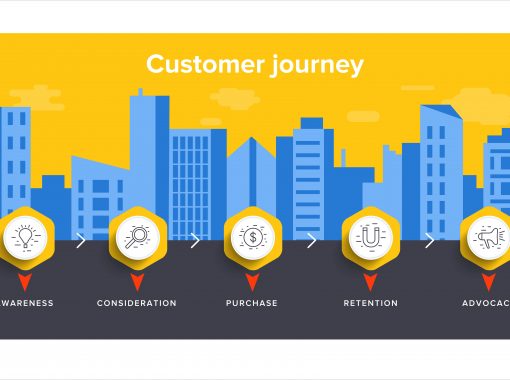
How Blogging Improves SEO
Blogging is an excellent way to make your website more SEO friendly.
It doesn’t matter if you are running a large Fortune 500 company or a small site where you post pictures of your latest decorated cakes. Blogging can have a big impact on how popular your website is by moving you to the top of the search engine rankings with quality content.
How blogging impacts SEO isn’t exactly straightforward, but you don’t have to be an SEO expert to see positive results from increasing the amount of effort that you put into blogging. You can see results by simply increasing the number of blog posts that you add in a week.
If you want to create a bigger impact, there are methods that you can use to target specific keywords that your audience can use to make your site appear more often in search results. Everyone can use an SEO plan to improve their ranking and drive traffic with an amount of effort that is comfortable for their needs.
Here we highlight some of the ways that blogging can improve SEO and why you should make sure to prioritize blogging as one of your key marketing strategies.
Become a Resource for In-Demand Content
Use your blog to distribute in-demand content that your potential website visitors want to know. As you post more of this type of content, the readers will start to recognize your website as one that they want to bookmark and visit to see new posts. They may even sign up for your email newsletter or RSS feed to find out about your latest posts. This is a great sign of reader engagement!
To identify what kind of content your readers want to learn look for trends in Google search results through Google’s Keyword Planner, or search for the best performing topics already on your site. You can use this data to make the best decisions about what content to use on your site’s blog.
Larger Site Size Means More Search Results
The more blog posts you create, the larger your site will be. While this could eventually increase the amount of space necessary to host your website, it creates a more substantial resource for your site visitors. With more pages and posts to scroll through, visitors will likely spend more time on your website now that there’s real content to engage with.
Should you decide to sell your website down the line, the more content you will have to offer to prospective buyers. Therefore, you should get more money for the site when it comes time to implement your exit strategy. In this way, adding more content to your blog could be considered a long term investment.

More Opportunities for Backlinks
Backlinks are an important aspect of search engine optimization. These are links to your website on other sites, which tells search engines that your content is valuable and relevant. Other sites won’t have links to your page if it is bad.
You could leave your website’s URL as part of your comments on forum posts. But this tactic can come across as spammy. Instead, create engaging blog posts that other bloggers link to as a way to create their posts. This is an organic way of getting the backlinks that you need.
For context, you could create a valuable long-form content piece such as a 10,000 word blog post about a specific topic. Then you could proactively reach out to other bloggers to see if they will include a link to your valuable post on their site.
A good example of this is a roundup style post. For instance, if another blogger has a post about the best resources on a topic, you could ask them to include your post, too. There is a chance that they will be willing to include your post if it provides good content to readers and you’re not in direct competition.
Increased Keyword Usage
The more content on your website, the more opportunities you have to incorporate highly relevant keywords into your website. If you have a basic website with only 5 pages, how many keywords could you possibly feature on your website? Probably not very many.
Ideally, you should identify a series of keywords that are perfect for your website and its target visitors. Then, you can create a series of posts that incorporate these keywords thoroughly. The more content that you have about certain keywords, the greater chance there is that search engines will correctly recommend your website for relevant queries.
For example, if your website is about your band that performs at weddings, birthday parties, and special occasions, you would first make a list of relevant keywords. It would probably look something like this:
- Birthday party performers
- Wedding singers
- Wedding live entertainment
For each keyword, you would create several blog posts targeting the keyword. For the keyword “wedding singers,” you could list out article ideas that incorporate the keyword, including “tips for hiring wedding singers,” “famous wedding singers,” and “how to interview potential wedding singers.” These three topics would give you plenty of chances to add more keyword-rich content to your band’s website.

Lasting Benefits with Evergreen Content
Social media can be an effective content marketing tool for nearly every business, with many free opportunities to post content on various platforms. Unfortunately, social media posts are only valuable until newer posts push the content further into the past.
Blog posts can utilize evergreen content that works for your business now and into the future. As long as the post doesn’t include too many time-specific references, it is possible to create evergreen content that will be valuable forever. You write the post once and then you can continue to promote it through social media forever.
For instance, writing a post about how to potty train a toddler will be valuable information today and any time in the future whenever a reader needs to know more about potty training. This would be an evergreen post. Conversely, a blog post featuring the details of what attendees can expect if they attend Tuesday’s potty training workshop at the library is not evergreen. Once the event is over, the content becomes dated.
Create a Community By Answer Frequently Asked Questions
Your blog is a good place to answer frequently asked questions that customers have. There’s a significant chance that people look for the answers to these questions online, too. As someone types in a question into a search engine, the content that you created answering the question could show up.
When it comes to figuring out what to write about, frequently asked questions are an excellent place to start. You can ask your customers what they want to know specifically, even as a survey. You can review search engine results to see what questions and related questions people have about your industry. You can also check out your competitors’ websites to see if they have FAQ sections that list commonly asked questions.
Drive Traffic with Fresh Content
Posting new content regularly on your website can keep it fresh so that it doesn’t appear stale and outdated to people and search engines. We’ve all spent time online viewing a website that hasn’t been updated in years. This can make people question if your business or brand is still around or if the content on your site is still accurate.
Search engines will rank sites lower that haven’t been updated with new content. In an ideal world, you would post new content to your blog at least twice a week to see the best results.

Relevance to Searched Topics
The more recently and frequently you update your blog, the more relevant your site will seem. The blog posts you create should utilize a large number of relevant keywords. The more posts on your site, the more keywords. Combined, these two factors can significantly impact the relevance of your site. This is an important metric for SEO.
More Internal Links for Your Website
Blog posts are an almost effortless way to incorporate internal links to other blog posts and service or product pages on your website. Since you have complete control over what kind of links are used, you can help to promote your site using blog posts.
If someone finds your blog post, having internal links can lead them to other parts of your site that you want them to. When the search engines choose what results to show, it calculates how many links the site has.
Naturally use Long-Tail Keywords
It is easier to incorporate single or two-word keywords on a website page. But, it can be more complicated to add long-tail keywords organically and naturally. Blog posts can be a good way to accomplish this. You can create entire posts centering around a long tail keyword that you want to target.
There’s no doubt about it: blogging can improve SEO on websites of all sizes. It is inexpensive and effective while providing ample SEO-boosting capabilities. To benefit from the SEO best practices listed in this article, you can write the content yourself or hire a content writer that can help you to craft high-quality content that your readers will love.
Melanie G. is a freelance writer and editor living in Tampa, Florida. She’s freelanced full-time since she left her writing job at Nielsen in 2012.




